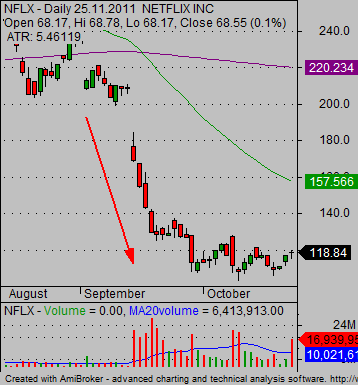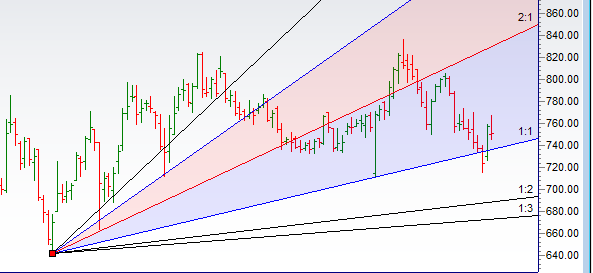What is an Accounting Period or a Fiscal Year?
Contents:


For individuals new to the business world, accounting period concept and financial year often sound like the exact same phenomenon. However, there are differences that have been highlighted through the comparison below. Accounting TransactionsAccounting Transactions are business activities which have a direct monetary effect on the finances of a Company. For example, Apple representing nearly $200 billion in cash & cash equivalents in its balance sheet is an accounting transaction. A company records its transactions from 1st January to 31st December every year and closes its financials. Here, the accounting period is one year, i.e., 1st January to 31st December.
The accounting period principle requires that such adjustments are made judicially and that an accounting record is created accordingly. The end of the fiscal year would move one day earlier on the calendar each year until it would otherwise reach the date seven days before the end of the month . At that point it resets to the end of the month and the fiscal year has 53 weeks instead of 52. In this example the fiscal years ending in 2008, 2013, and 2019 have 53 weeks. For the charge period of the United Kingdom corporation tax, see Accounting period .
Burning Rock Reports Fourth Quarter and Full Year 2022 Financial … – BioSpace
Burning Rock Reports Fourth Quarter and Full Year 2022 Financial ….
Posted: Tue, 28 Mar 2023 06:50:13 GMT [source]
These are the set of basic rules, laws, regulations, and assumptions which are kept in mind when entering a transaction in accounts books. Experienced accountants keep the entire accounts rule in mind when preparing an accounts book. An accounting standard is a common set of principles, standards, and procedures that define the basis of financial accounting policies and practices. Privately held companies and nonprofit organizations also may be required by lenders or investors to file GAAP-compliant financial statements. For example, annual audited GAAP financial statements are a common loan covenant required by most banking institutions. Therefore, most companies and organizations in the U.S. comply with GAAP, even though it is not a legal requirement.
All the expenses paid in cash or payable are considered and the advance payment of expenses, if any, is deducted. The money measurement concept assumes that the business transactions are made in terms of money i.e. in the currency of a country. Hence, as per the money measurement concept, transactions that can be expressed in terms of money should be recorded in books of accounts. For example, the sale of goods worth Rs. 10000, purchase of raw material Rs. 5000, rent paid Rs.2000 are expressed in terms of money, hence these transactions can be recorded in the books of accounts. Similarly, expenses are recognized at the time services are provided, irrespective of the fact that cash paid for these services are made.
Going Concern Concept
An accounting period may consist of weeks, months, quarters, calendar years, or fiscal years. The accounting period is useful in investing because potential shareholders analyze a company’s performance through its financial statements, which are based on a fixed accounting period. The most notable principles include the revenue recognition principle, matching principle, materiality principle, and consistency principle. Completeness is ensured by the materiality principle, as all material transactions should be accounted for in the financial statements.

In contrast to the comprehensive view of spending when an item is paid, this payment identification allows for relative comparisons over several billing periods. According to the going concern idea, the company will continue to operate indefinitely. So, according to the accounting period concept, Ram & Sons prepares their accounts once a year, with the year beginning on April 1 and ending on March 31. Most of the corporate has to provide annual report to the shareholders as well as income tax reporting on annual basis. In most of the businesses, the accounting year or fiscal year corresponds to the calendar year.
What Are the Basic Accounting Principles?
Now suppose, he takes away Rs. 5000 cash or goods for the same worth for his domestic purposes. This withdrawal of cash/goods by the owner from the business is his private expense and not the business expense. The primary aim of accounting is to maintain uniformity and regularity in the preparation of accounting statements. For example; the period used to report the cost of an item sold is the same as the period used to report the revenue of the same item. A calendar year or economic year is an accounting length, a hard and fast length in which accounting sports are performed, collected, and analysed.

Comparing results from one period to another ignores the factual factors that contributed to the variances. If the company wants to switch from the calendar to the fiscal year, the IRS must grant permission. If a business wants to change from a calendar year to a fiscal year, they need to be permitted by the IRS.
Presentation of the Time Period in Financial Statements
Here, the accounting period is that of half-year, i.e., 1st January to 30th June, and the next period shall be from 1st July to 31st December. This means that, regardless of when the actual transaction is made, the expenses that are entered into the debit side of the accounts should have a corresponding credit entry in the same period. In some of the ERP tools there are more than 12 accounting periods in a financial year. Older systems sometimes called these periods « Month 0 » and « Month 13 ». No, an accounting period can be any established period of time in which a company wishes to analyze its performance. Using the example of depreciation from above, the depreciation and subsequent spread of expense over multiple periods better matches the use of fixed assets with its ability to generate revenue.
We accounting period concept in accounting strict ethical journalism practices, which includes presenting unbiased information and citing reliable, attributed resources. Our team of reviewers are established professionals with decades of experience in areas of personal finance and hold many advanced degrees and certifications. In case a business wants to change from a calendar year to a fiscal year, they would need special permission from the IRS.
- The life of a business can and should be divided into equal time periods.
- The accounting period is the length of time it takes for a business’s accounting cycle to be completed.
- Provides a review and forecast tool for management and helps in comparative analysis.
- At the end of an accounting period, a company will close out the period.
- The Internal Revenue Service allows taxpayers to record taxes by calendar year or fiscal year.
The idea behind this concept is that recognition of revenue requires better evidence than recognition of expenses. This concept emphasizes that revenues are recognized only when they are reasonably certain and expenses are to be recognized as soon as possible. For example, a sales manager might have finalized a deal with his client for a sale of 100 units of a product.
It is in accordance with this concept that when an owner brings capital into the business, the business in turn is deemed to owe the capital to the owner. Again, coming to the business between the sole proprietary concern and its sole proprietor, usually the proprietor may not pay himself a salary, even when he works for his business. However, in accordance with the business as a separate entity, his position as an owner must not come in the way of his charging a salary to the business for the services rendered by him. The reward of ownership is to be manifested only in the form of profit, which must be arrived at after charging ‘all costs’. The fiscal year refers to an annual period that does not end on December 31.
What are the different types of accounting periods?
This data is helpful to business owners, investors, creditors, and government agencies. The period assumption provides stakeholders with reliable and relevant financial information to make timely business choices. An accounting period is an established range of time during which accounting functions are performed, aggregated, and analyzed.
- A year is divided into four halves according to the calendars, and each quarter consists of 13 weeks divided into a five-week months and two four-week months.
- Most corporations must produce an annual report to their shareholders and income tax filing every year.
- At any particular point in time, many accounting periods usually are active.
- Most people evaluating a company will do so by studying the financial statements over a few accounting periods.
- The end of the fiscal year would move one day earlier on the calendar each year until it would otherwise reach the date four days before the end of the month .
- In order to report the performance of the business to outsiders, one year is the usual accounting period.
The act of chopping the continuous stream of business events into time periods is arbitrary. Since business activities do not stop or change significantly as one accounting period ends and another begins. This fact makes the problem of measuring income for an accounting period the most difficult problem in accounting. A company records its transactions from 1st January to 30th June every year and closes its books of accounts after that.
The expenditures of a firm for a particular https://1investing.in/ period are to be matched with the revenue of the same accounting period to ascertain accurate profit or loss of the firm for the same period. The accounting cost concept states all the business assets should be written down in the book of accounts at the price assets are purchased, including the cost of acquisition, and installation. It implies that the fixed assets like plant and machinery, building, furniture, etc are recorded at their purchase price. For example, a machine was purchased by ABC Limited for Rs.10,00,000, for manufacturing bottles.
What is the Time Period Principle?
In some businesses, such as trading, the operating period may be relatively small, say a month or even less, while in other cases, it may stretch well beyond a year. Under the Companies Act, a company is normally not permitted to have the accounting period extending beyond fifteen months. Five key concepts underlie accounting procedures and the creation of financial statements, even though there are many rules for accountants. The accrual principle, matching principle, historic cost principle, conservative principle, and the principle of substance over form are those.

It also facilitates the comparison of financial information across different companies. Accounting principles also help mitigate accounting fraud by increasing transparency and allowing red flags to be identified. This enables companies to present a true and fair view of the financial statements. Financial statements are prepared a few days later, and the next accounting period is initiated. The results of each interval will represent the company’s financial result in each such interval. Thus, the one-by-one comparison is possible only regarding the accounting period.
NEXGEL, INC. Management’s Discussion and Analysis of Financial Condition and Results of Operations (form 10-K) – Marketscreener.com
NEXGEL, INC. Management’s Discussion and Analysis of Financial Condition and Results of Operations (form 10-K).
Posted: Tue, 28 Mar 2023 10:10:08 GMT [source]
An accounting period might be a week, a month, a quarter, or any other unit of time that encompasses specific accounting activities. It is possible to record financial information over a long period using the accrual method of accounting. It is the most typical calendar format, particularly in retail and manufacturing. A year is divided into four halves according to the calendars, and each quarter consists of 13 weeks divided into a five-week months and two four-week months.

Laisser un commentaire
Rejoindre la discussion?N’hésitez pas à contribuer !